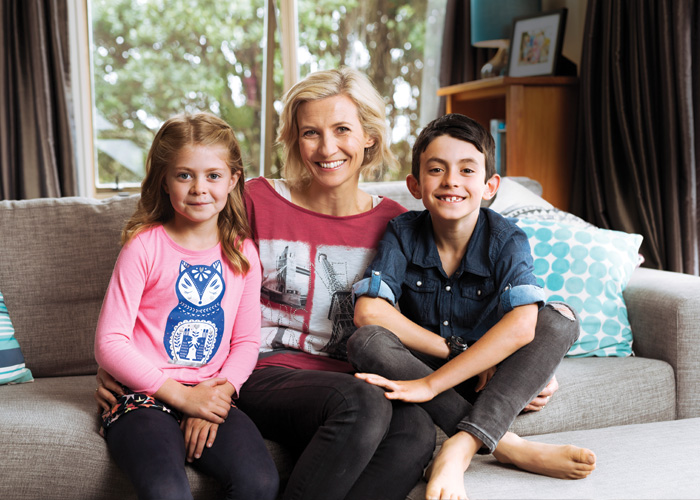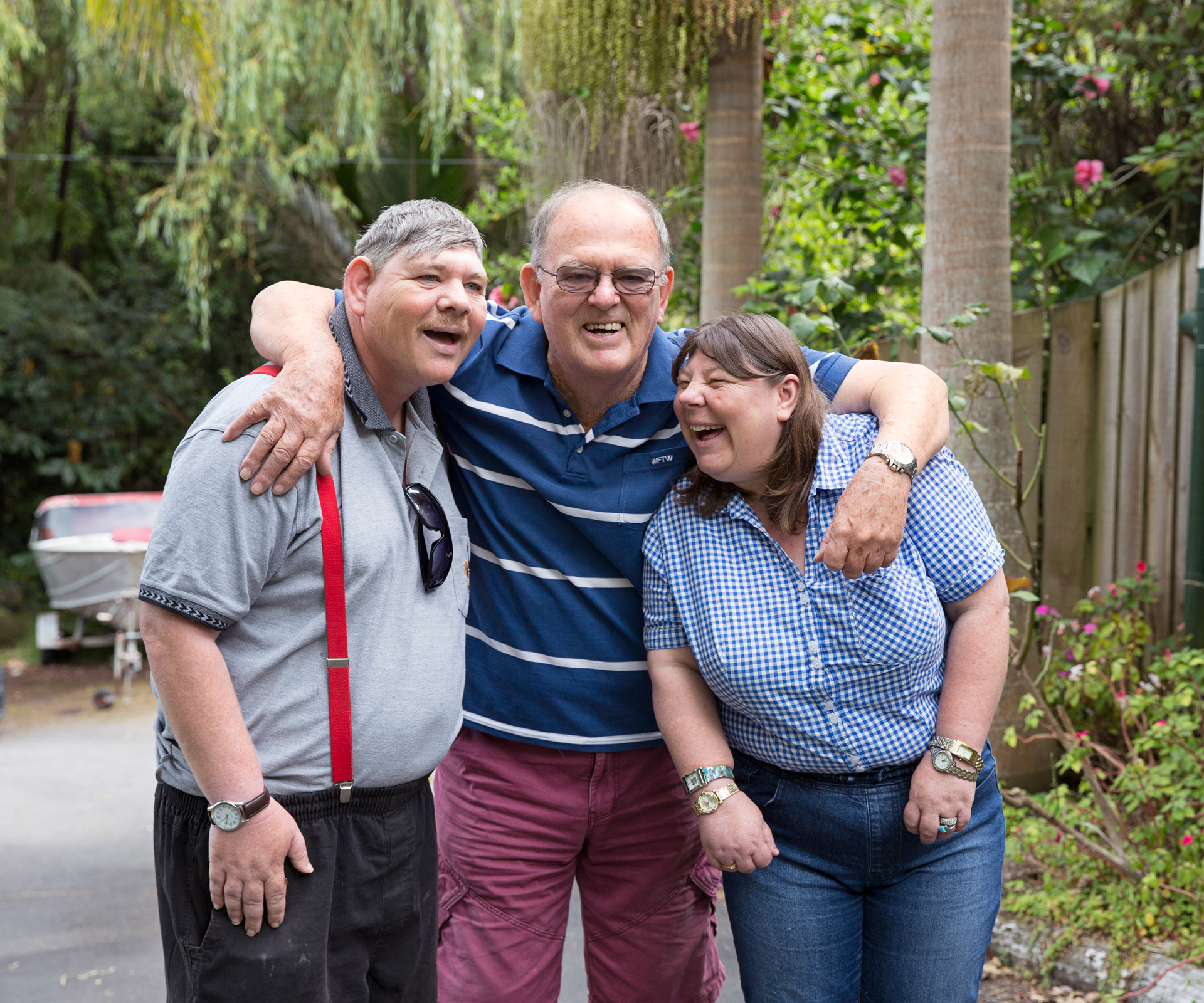The photograph said it all – six generations of one very big happy family. At the heart was matriarch Mary Lim (93) cradling her newborn great-great-great-grandson little Noah Aiga in her arms.
Then there was Noah’s mum Chynna Luamanu (20), Mary’s great-great-granddaughter; Chynna’s mum Tasha Pritchard (38); her mother and Noah’s great-granny Tina Pritchard (53) and Mary’s daughter, 71-year-old Annette Kemp.
Sadly, Mary passed away in June – four months after the family appeared on the Weekly. Befittingly her funeral, according to youngest daughter Robyn Lambourne, was “really, really, really big”, with close to 600 mourners packing out the South Auckland venue.
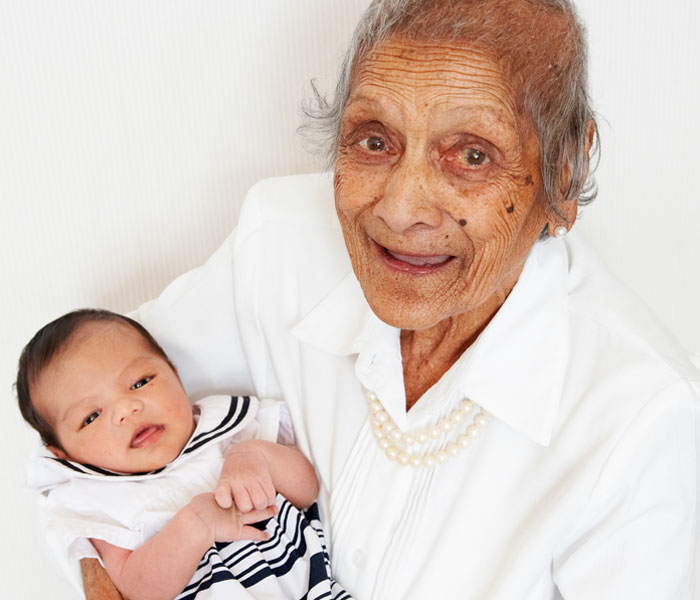
Mary’s family members figured out that baby Noah is her 174th direct descendent.
Mary’s final journey will be later in January when relatives take a photograph of her back to her marae in Te Hauke in Hastings.
“Many of the younger ones have never been to the marae,” Robyn says, “so it will be a good introduction to their whakapapa.”
Noah, meanwhile, is now 11 months old, “standing up and doing all the age-appropriate milestones and saying a few words. His grandmother Skypes him every day from Australia. He’s very spoilt.”
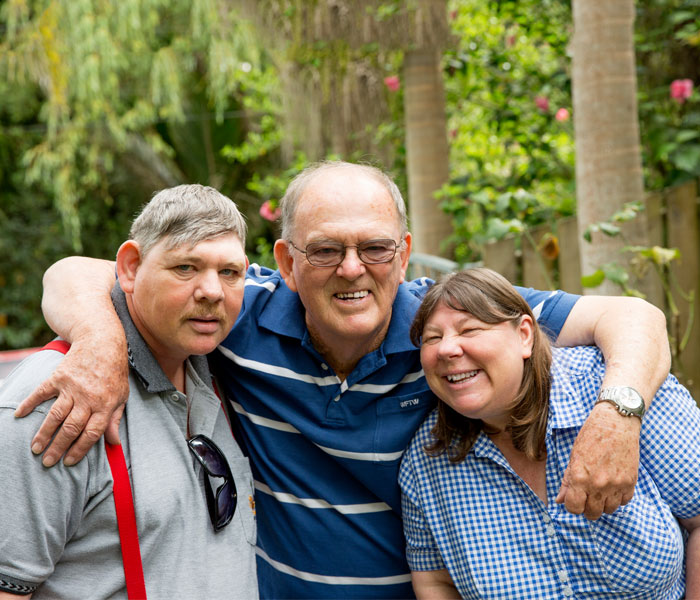
Our wonderful life together
Cliff Robinson has spent half a century single-handedly looking after his two intellectually disabled children Marita and Johnny, who were born with microcephaly.
Their story featured on the Weekly as fears about the Zika virus – one of the causes of the neurodevelopment disorder – spread prior to the Olympic Games in Rio, Brazil.
Cliff, who lives near Thames, is one of around 1400 Kiwis eligible for financial assistance under the Funded Family Care scheme, but two years ago, after initially being told by the Ministry of Health he would receive 40 hours a week of government funding, the decision was reversed and his income was cut.
He’s been fighting to have the money he and other carers have missed out on reimbursed, and had a win, of sorts, last month, when the ombudsman ruled the Ministry had acted unreasonably.
The Ministry agreed they will reinstate the payment, but has yet to agree to back-dating it.
“Any parent that’s struggling with full-time care of a disabled child knows there’s a lot more than 40 hours in a week, but it’s a start,” Cliff says.
However, the former seaman, who lives mostly off the land and sea to feed his family, isn’t bitter.
“I’m just doing my job and I’m doing it for love, not money.”
He continues to be amazed by the kindness of Kiwis.
“We’ve just been to Pukekohe to pick up some home-killed meat that a really kind man offered us. There we were – he’d just given us mince, some silverside, a box of hamburger patties, and he handed the kids a Warehouse voucher for $100. This is a bloke that broke his back 12 months ago – he’s paralysed from the waist down. Terrible, but there he was worried about Rita and Johnny.”
A Givealittle page has also been set up for Cliff and his family by Laila Harre, one of the children’s trustees. Visit givealittle.co.nz/cause/cheer4robinsons.
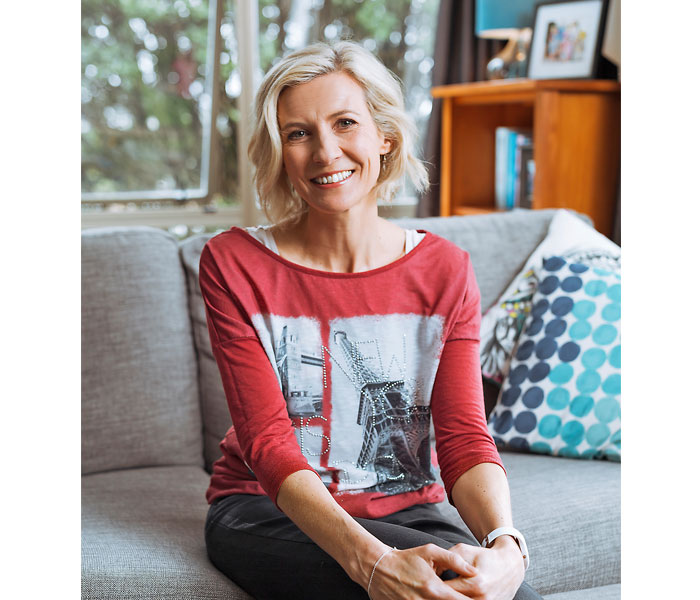
Samantha’s lucky to be part of a clinical trial.
A step toward stability
Samantha Lenik is one of just 10 people in New Zealand with Pompe disease, an incurable degenerative condition that affects the sufferer’s muscles and can eventually lead to wheelchair dependence and cause life-threatening breathing difficulties.
The 42-year-old Whangaparaoa mother-of-two has been campaigning to have Myozyme – a so-called “orphan drug” that can stabilise Pompe’s – funded by the government.
When the Weekly spoke to Samantha in October, she was having trouble with walking, her core strength and shortness of breath. She has since begun treatment, participating in a clinical trial being run by Amicus Therapeutic, which means travelling to Adelaide every fortnight for three days for the next two years.
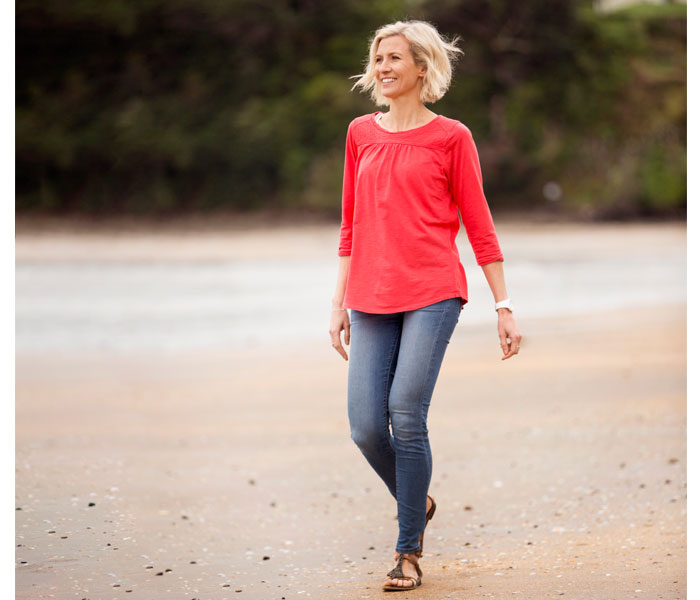
“I know I’m amazingly lucky. I’m overjoyed that I’ve got the opportunity to participate, but who knows what will happen at the end of it…whether I’ll be cured or not. The point is, it would be so much better if the treatment was available in New Zealand.”
Meanwhile, Samantha’s not giving up her fight to help others in her situation. Her petition pushing to have better funding for medicines for rare diseases has gathered around 3000 signatures and was due to be presented to her local MP Mark Mitchell last week.
Coincidentally, Myozyme has just been given limited approval, but only for babies.
“And that’s fantastic,” says Samantha. “But there are no infant cases of Pompe in New Zealand. In other countries, they have initially funded it for infants, then for juvenile sufferers and then for adults, so I’m hoping that’s what will happen here.”
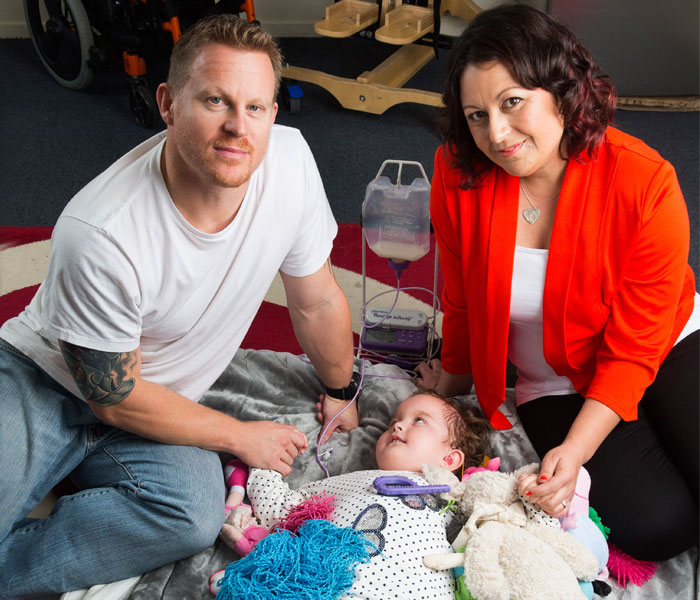
Generous donors through Givealittle helped the family buy a house.
A roof over our heads
To say Michael and Priscilla Foot have had a hell of a year is putting it politely.
Two years ago, the family was told to prepare an end-of-life plan for their four-year-old daughter Briana, who has a rare genetic condition which causes a complex set of disabilities and which means she needs round-the-clock care.
When the Weekly first met the Huntly family in June, the couple were desperately searching for a warm, dry home. They were facing winter with just one electric heater for warmth and were sleeping in the lounge.
The Foots have since bought a home with $7000 raised through Givealittle going towards a deposit, and are preparing to move into it. But unlike most young couples for whom a first home is cause for celebration, Priscilla and Michael have little to be enthusiastic about.
They have just spent an emotional three months at Starship hospital with their very sick little girl.
“It’s been really tough,” says Michael. “We almost lost her a couple of times – the doctors weren’t expecting her to make it. She’s very fragile and she’s gone through so much. There’s not a lot we can do now except keep her comfortable and make her happy.”
Both ex-military, Michael stopped working to look after their daughter while Priscilla has continued to work full-time, putting in 12-hour shifts in an effort to cover the costs associated with Briana’s care.
They are now facing further expense to modify the new home and have applied to the Ministry of Health for some help, although Michael says they’re not holding out much hope.
“Basically, they don’t see the point of spending any money if she’s going to pass away, but we’ll cross that bridge if and when we come to it.”
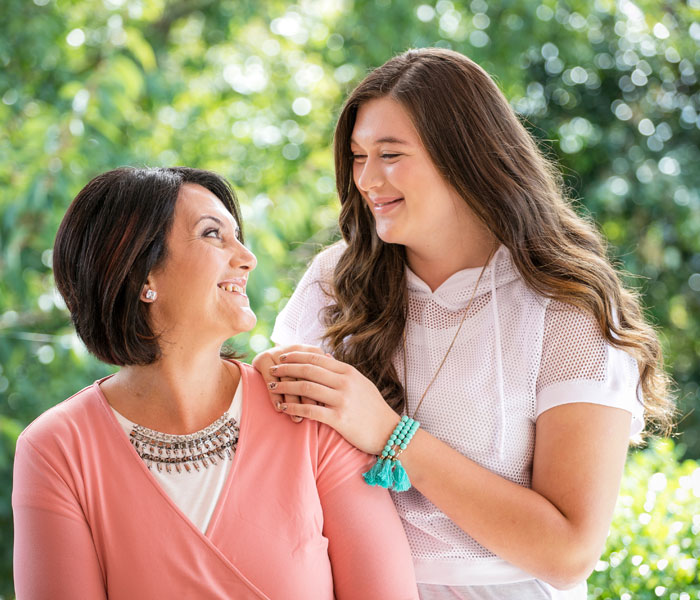
Weight lost, life gained
At her heaviest, South Auckland mum-of-three Veronica Tawhai weighed 169kg.
Despite some success at shedding the excess kilos through exercise and Weight Watchers, she was experiencing problems with both her physical and mental health, which was exacerbated by the anxiety she had suffered since having kids.
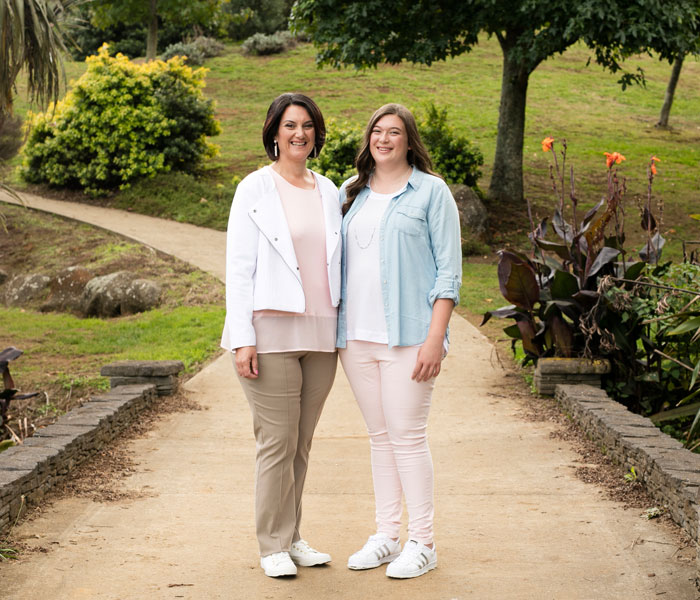
Referred for bariatric surgery by an orthopaedic surgeon, who told Veronica that losing weight was the only way to help with her arthritic knee pain, she managed to lose 29kg before having the operation in March last year.
Talking to the Weekly in April after losing a further 41kg and featuring in a TV documentary, Veronica (43) said while her journey had been tough, she felt like a new person.
She’s just as happy today, proudly telling how empowering it was for her – along with her main “support person”, daughter Sophie – to complete a Skechers 12km walk last month.
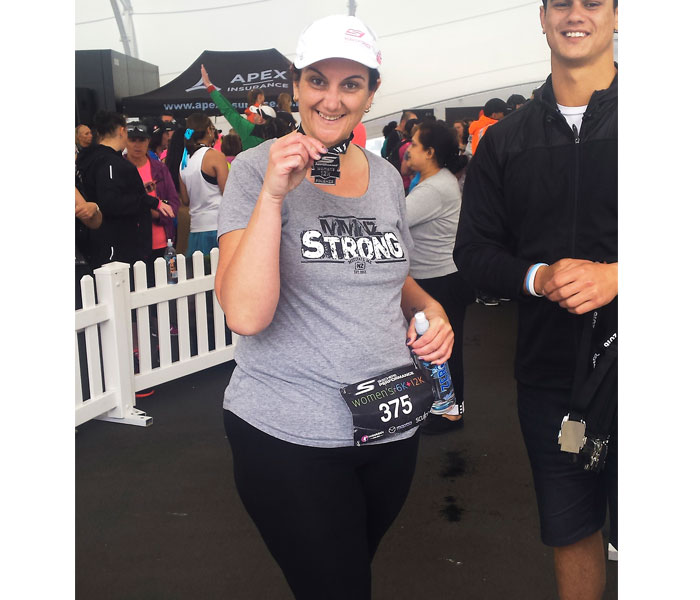
A very proud Veronica at the end of her 12km walk.
Not only that, she is also playing social netball and has now lost a total of 75kg. Her next target is to have surgery to remove the excess skin she is carrying.
“At the moment, I’m talking to a surgeon about how much it will cost because that is the biggest barrier. But other than that, everything is great. To be seen as normal rather than ‘the fat person’ is wonderful.”
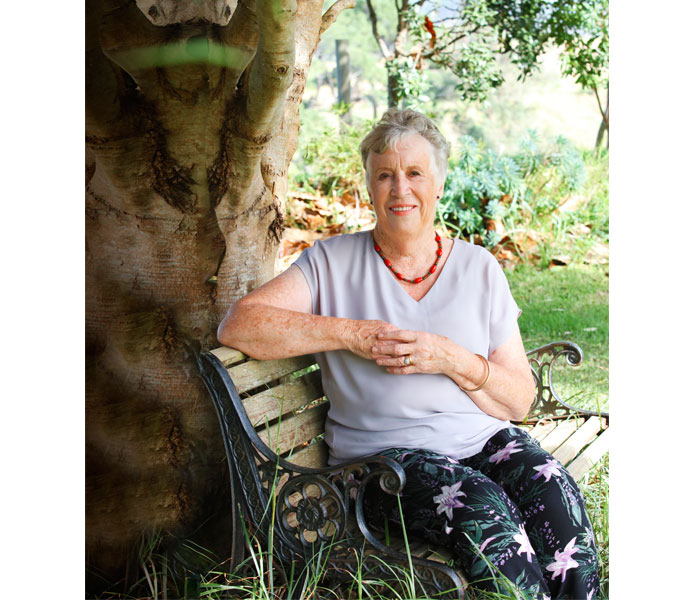
The man we once knew
After 50-plus years of marriage, it was the most minor of things that alerted Ann Wilson to the fact something might be wrong with her beloved husband Denis. He was leaving the toilet seat up, when he’d always put it down.
Denis is one of an estimated 60,000 Kiwis with dementia. The disease, said Ann, when she shared her heartbreaking story with Weekly readers in May, was robbing her of her soulmate – the man who had built the family home in West Auckland, the man she remembers as witty and intelligent – but who now, when they argued, told her he hated her.
She was hoping then that Denis, who she met at a dance in Derbyshire, wouldn’t require care and could stay in their home.
“I would only think about the rest home if I felt threatened physically,” she said through tears. Seven months on and that is exactly what’s happened.
Denis attacked Ann at their home, hitting her after becoming upset at her being in “his house”, and running, screaming, after her as she fled down the driveway. He has spent time in Craigweil House’s dementia unit, but having escaped three times Ann says they refuse to have him back.
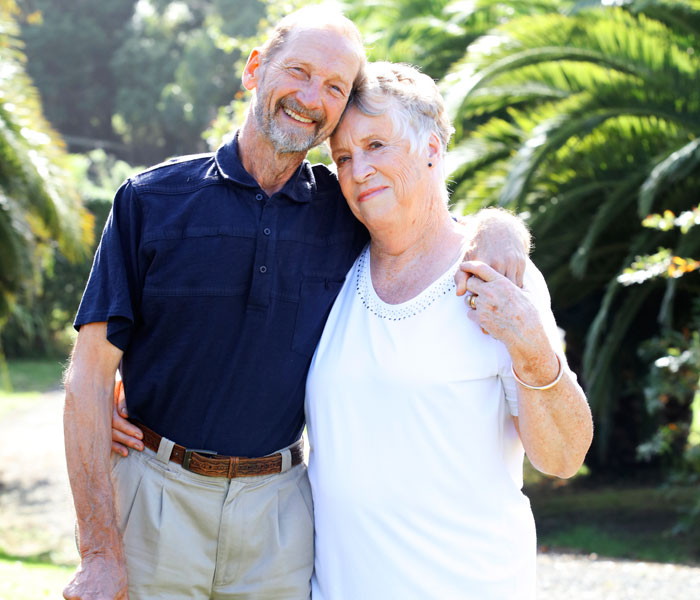
The Denis who lives on in Ann’s memories built a family home and was very witty.
“He likes being at home because he can do things. There was nothing for him to do at the dementia unit and I’m sure that’s why he ran away. He doesn’t run away when he’s at home.”
He is now in a secure ward at North Shore Hospital.
“The dementia he has is the worst kind,” Ann says sadly.
“It brings out this awful foul language and this viciousness. And he’s been such a mild English gentleman all his life. I think of our voyage to New Zealand in ’64… this is how it’s ended.”
For support or to donate, visit alzheimers.org.nz.

